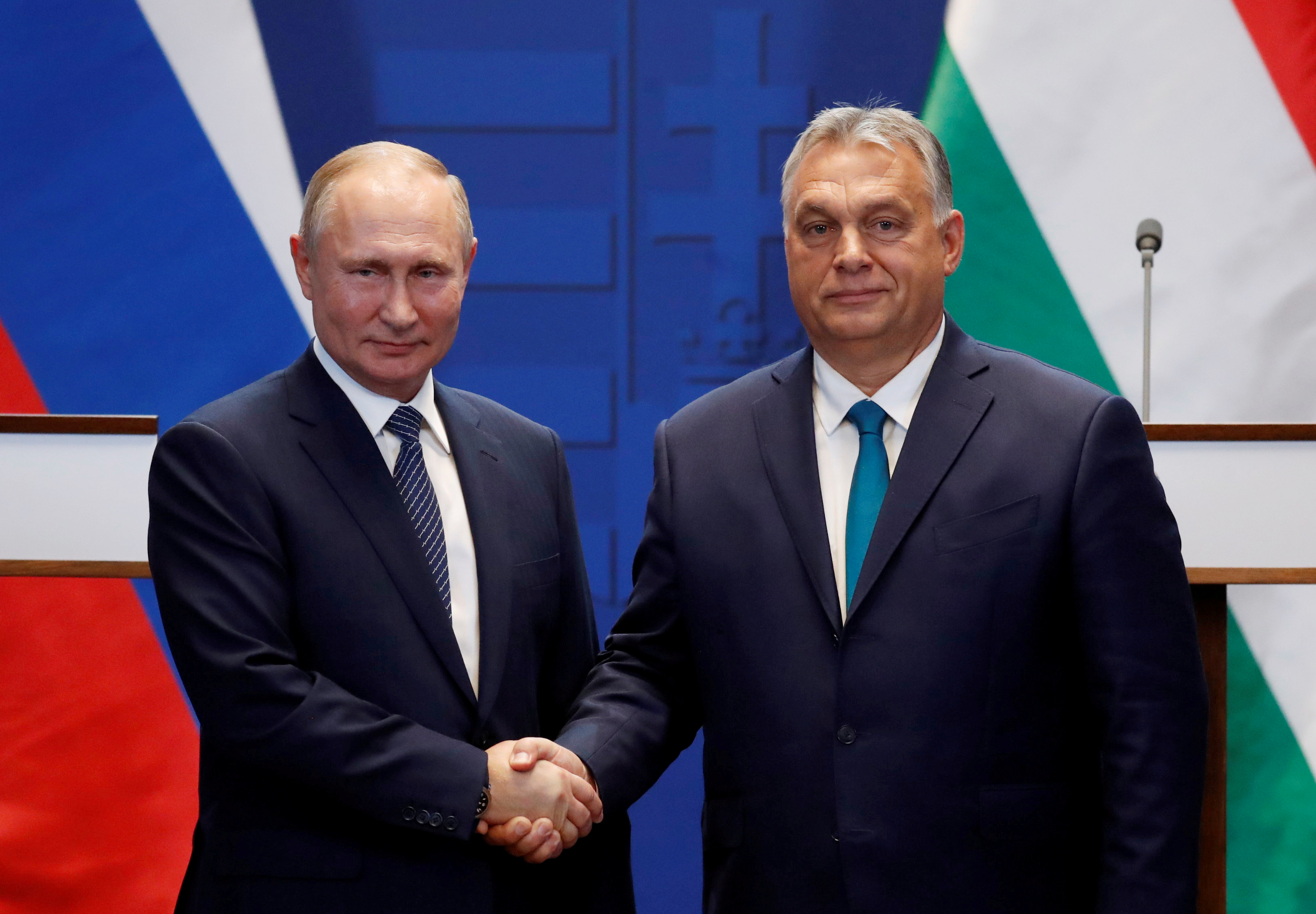
It was the fourth consecutive victory. The most comfortable of all for Viktor Orbán. On Sunday, the Hungarian nationalist prime minister won the legislative elections widely by crushing the unprecedented opposition coalition, which hoped to defeat him after twelve years in power.
Viktor Orban will be the leader of Hungary for at least four more years. His three previous mandates transformed the Central European country into an “anti-liberal” state that has led the country towards a more authoritarian, ultra-conservative, anti-immigration and isolated model within the European Union.
“We will remember this victory, because we have never had so many opponents, among our national left, the international left, the bureaucrats in Brussels, Hungarian-American billionaire George Soros, the international media and even the Ukrainian president,” he said with a big smile on Sunday night.
The great support was not overshadowed despite his closeness to Vladimir Putin. Viktor Orban has in no way suffered public reproaches led by Ukrainian President Volodymyr Zelensky for his lack of support to stop the Russian invasion.
Almost immutable, even as one of the few global leaders who did not condemn the abuses discovered on Sunday in Bouchta, on the outskirts of Kiev, that shook the entire world, the prime minister won 53.19% of the votes, a result far above all projections.
Confronted with the Brussels community government, although forced to balance interests if it wishes to receive the extraordinary European funds established for the post-Covid recovery, the forcefulness of the triumph further stresses the range of confrontations. In addition, this huge voting floor could decide him to move forward on a constitutional reform to ratify the setbacks in the rule of law observed during his previous terms, something that has alerted continental partners.
The Fidesz, winner Orban's party, used its two-thirds majority in Parliament for numerous reforms. In 2013, a controversial initiative conditioned the independence of the judiciary. The legislation limits the prerogatives of the Constitutional Court to rule on certain issues, forcing it to refer to previous judgments, when jurisprudence benefits the government. A new procedure for the appointment of judges also ensured the influence of the executive in its composition and weakened the principle of irremovability of judges.

For many opponents, only the power of the media under government orders can explain the triumph. Despite the rejection of Brussels, Budapest in 2010 moved forward with a law that provided for the creation of a government-appointed Media Council, responsible in particular for ensuring objectivity. With this control system, the public media broadcast only a five-minute interview with opposition leader Marki-Zay throughout the campaign.
The questioning of control over communication has come to place Hungary in 92nd place in the Reporters Without Borders (RSF) ranking on press freedom, behind Kyrgyzstan or Haiti, while in 2009 it was ranked 25th.
Another clash with other European partners is Orban's strong opposition to immigration policy. In the name of the protection of a “Christian Europe” and the “Defence of Hungarian identity”, the prime minister questioned the right of asylum of immigrants from Africa or the Middle East and in July 2015 he built a wall on the border with Serbia, while a wave of immigrants from Africa or the Middle East arrived in Europe, in particular, Syria, Iraq and Afghanistan.
Recently, the European Commission had to open an infringement procedure against Hungary for opposing the distribution of immigrants seeking asylum in the European Union. Orban's response did not hide how far it could go if members demand. The controversial ultra-conservative president openly mentioned the possibility of leaving the Union, accusing Brussels of having launched “a holy war, a jihad” in the name of the rule of law.
“We want to keep the EU together and that is why we have repeatedly made offers of tolerance. We don't expect them to adopt Hungary's migration, family, national or foreign policy, but we don't expect them to adopt their policies either,” he argued.
Complaints against Orban multiply from different European bodies and organizations in favor of human rights because they understand that he seeks to dismantle democracy since he came to power. They also question the norms that limit abortion, or a law that criminalizes homosexuality, a condition that is equated with pedophilia and prohibited from speaking in schools. As a framework, when he came to power, he had the values of “Christianity” and the “traditional family” transcribed in the Constitution.
The European Commission also opened an investigation to see if the Hungarian government should be fined for violating the fundamental rights of LGBTIQ people.
In response, Orban said that “for them, the rule of law means that they want to bring us to our knees and turn us into something that looks like them.” The president argued that Hungary does not want to be the same as Western Europe. “There is no other solution than tolerance. It's the only way we can find a common path,” he explained.
However, last Sunday's elections were a failed test to go further with many of its claims. Convened, Hungarians also responded to a query on “the protection of children”, in relation to this law. Among the questions posed to them: “Do you support the holding of sexual orientation sessions for underage children in public education without parental consent? or “Do you support the unrestricted introduction of content of a sexual nature into the media aimed at minors and affecting their development?” This referendum did not achieve the expected call for progress.
Much of Orban's policy is marked by a confrontation with the institutions of the European Union, its continued promotion of “anti-liberalism”, has even led it to separate itself from the rest of the European People's Party (EPP), its political group in Parliament .

In 2019, Orban's party, Fidesz, was called to apologize to members of the EPP, for their anti-European propaganda. Finally, two years later, it was the party itself that decided to leave the People's Party of Europe.
The Russian invasion of Ukraine raises the danger of collision with Europe. Confessed friend of Russian President Vladimir Putin, the Hungarian Prime Minister seeks a balance, without binding himself to Washington or Brussels, and maintaining ties with Moscow. Orban's line is to condemn the Russian attack, agree to take in Ukrainian refugees, but refuses to send military support and prohibits the passage of weapons through its territory.
This third way has even taken him away from his ally Poland. The ultra-conservative prime minister, Mateusz Morawiecki, has been a partner in many of his uncomfortable questions at 27. Warsaw, now columned with Europe by the war in Ukraine, has at the time rebelled against the justice of the Union, saying that several articles of the community treaties are incompatible with the country's Basic Law, in a thesis that Orban likes.
Now, this new and forceful support at the polls may be the start of more battles between the European Union and the wayward neighbor, with the possibility of multiplying on countless fronts, of an openly “Europhobic” and notorious “putinophile” man
Últimas Noticias
Debanhi Escobar: they secured the motel where she was found lifeless in a cistern
Members of the Specialized Prosecutor's Office in Nuevo León secured the Nueva Castilla Motel as part of the investigations into the case

The oldest person in the world died at the age of 119
Kane Tanaka lived in Japan. She was born six months earlier than George Orwell, the same year that the Wright brothers first flew, and Marie Curie became the first woman to win a Nobel Prize

Macabre find in CDMX: they left a body bagged and tied in a taxi
The body was left in the back seats of the car. It was covered with black bags and tied with industrial tape
The eagles of America will face Manchester City in a duel of legends. Here are the details
The top Mexican football champion will play a match with Pep Guardiola's squad in the Lone Star Cup

Why is it good to bring dogs out to know the world when they are puppies
A so-called protection against the spread of diseases threatens the integral development of dogs




